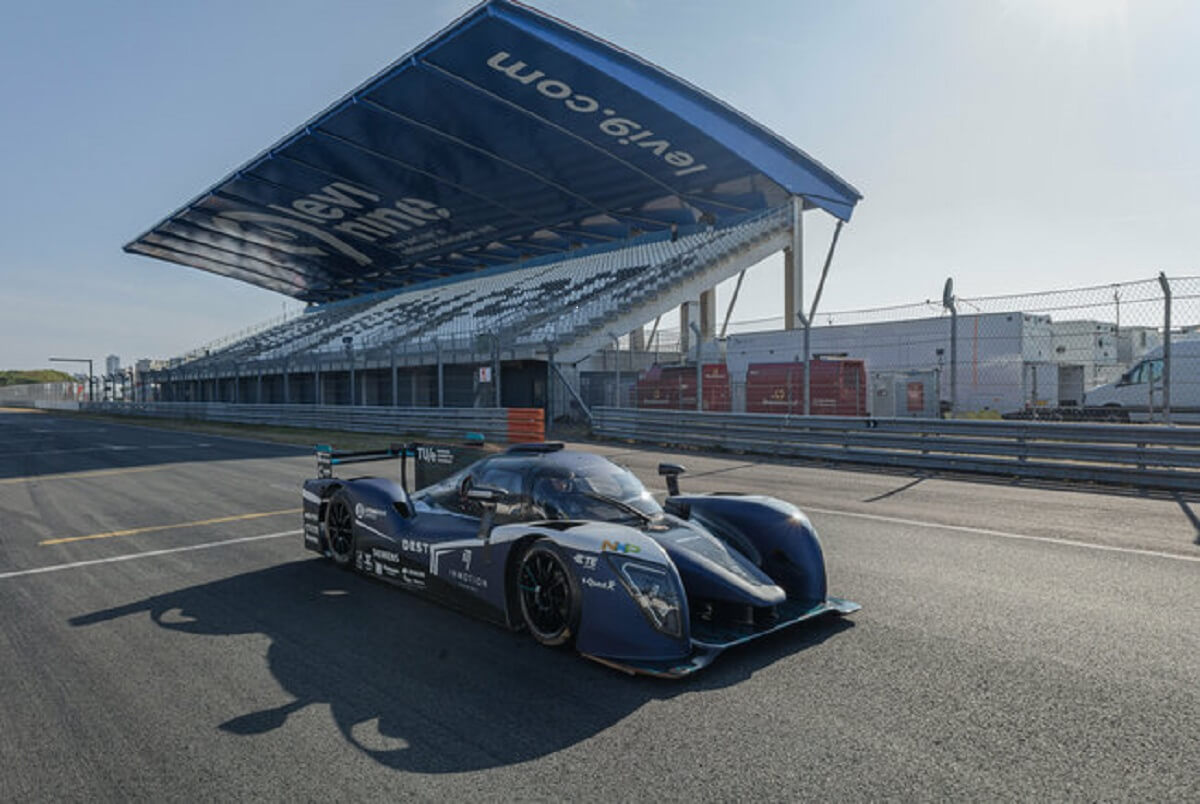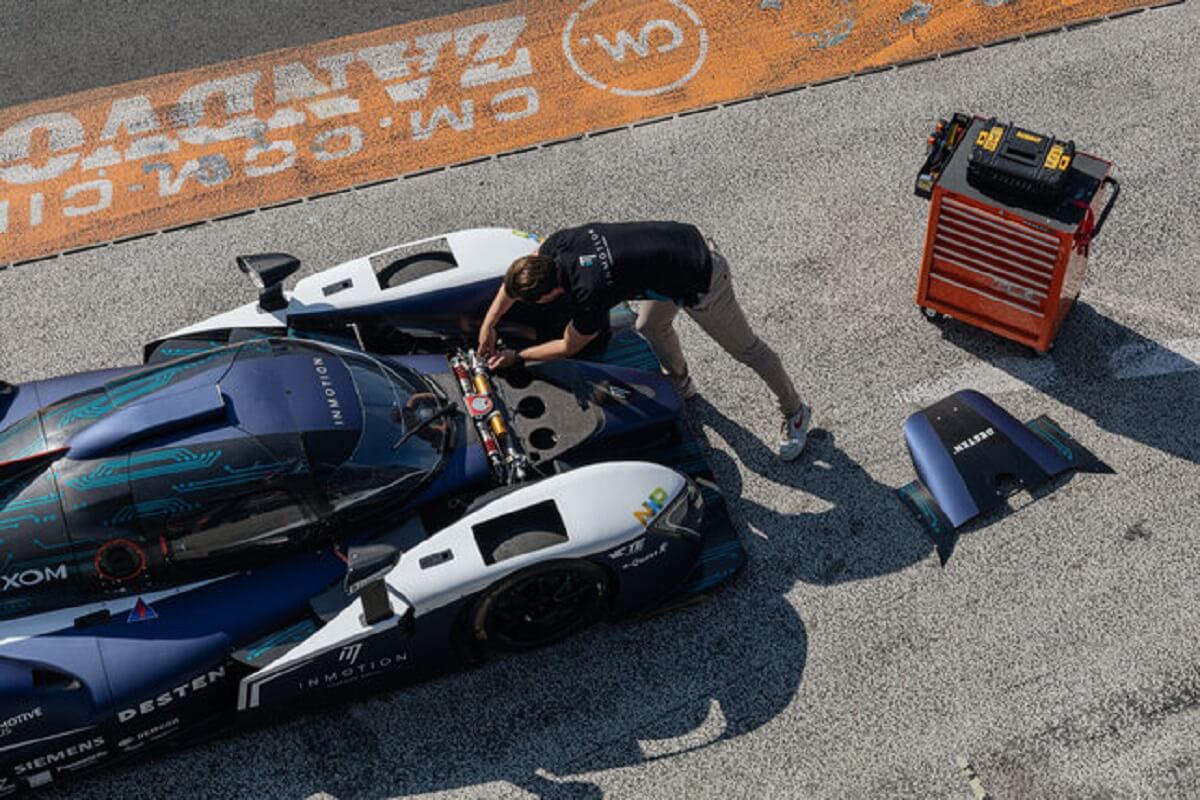
InMotion's electric race car. (credit: Charlie Acuna from The Eindhoven University of Technology)
EINDHOVEN, Netherlands — The next pit stop a professional racing driver takes may involve a plug and electricity! Scientists have unveiled the world's fastest-charging electric race car, which could power a vehicle as fast as refueling a gas-powered car.
The student team InMotion from the Eindhoven University of Technology (TU/e) has designed an electric race car capable of charging its battery in less than four minutes, making it the fastest-charging electric race car for endurance racing to date. According to TU/e, the battery pack in the race car charges in just three minutes and 56 seconds, with a charging power of 322 kW, a total capacity of 29.2 kWh, and a range of approximately 250 kilometers (over 155 miles).
Reducing the charging time for electric cars is crucial to make electric driving more accessible to consumers, the team notes. InMotion has taken up this challenge and is approaching a pit stop-worthy charging time.

To address the heat generated during fast charging, InMotion developed an innovative cooling technology at the cell level. By allowing coolant to flow between each cell, they can efficiently extract heat from the battery pack, which positively impacts the battery's lifespan and repeated fast charging.
“It was very challenging because there was only a few millimeters of space between the cells in the module to implement the cooling technology. This required us to be extremely precise in our work. We are thrilled that we have found a method that makes this possible,” says team manager Julia Niemeijer, in a university release.
The goal of InMotion is to demonstrate that the charging time of an electric car can be reduced to a level comparable to refueling a gasoline car, making electric driving more appealing and encouraging the industry to contribute to a greener world.
“Student teams like InMotion are important for pushing boundaries and testing new technologies in practice, triggered by challenging applications such as an electric race car. Faster battery charging in an electric car is certainly not trivial,” says Henk Jan Bergveld, part-time professor of Electrical Engineering at TU/e. “It is crucial for faster market acceptance, where innovations such as a battery pack with highly optimized cooling will play a significant role.”
The technology has been tested at research institute TNO and Prodrive Technologies, and InMotion plans to conduct extensive testing of the race car on the circuit in the coming year. They aim to showcase the technology during the 24 Hours of Le Mans, subjecting the battery pack to the challenging conditions of long-distance racing.
You might also be interested in:
- Battery breakthrough could keep your cellphone charged 3 times longer!
- Crab-powered cars? Scientists create a sustainable battery made from shellfish
- Affordable electric car battery charges in 10 minutes, powers vehicle for 250 miles
South West News Service writer Dean Murray contributed to this report.











Sorry - I meant to say “the combined Formula E + Formula 1 race series” not Formula 3.
Unfortunately there seems to be no way to edit / correct messages that we post on this website as is customary elsewhere.
Paul G
Sorry guys - electric racing is the one area where the alternative - ultra-fast battery-swapping - would obviously be the infinitely superior solution. China's Changan can now swap a full-sized family EV's battery pack in 30 seconds(!). This would enable the combined Formula E+Formula 1 single integrated race series that so many race fans now really want to see happen but which unfortunately so many powerful combustion and gasoline-linked vested interests, ICE-junkies and petrol heads will vehemently oppose for as long as they can go on playing Canute. And of course our media and so-called “journalists” never - and will never - have the cojones, the independent-minded integrity or heretical inclination to ever dare propose such a thing...
Paul G